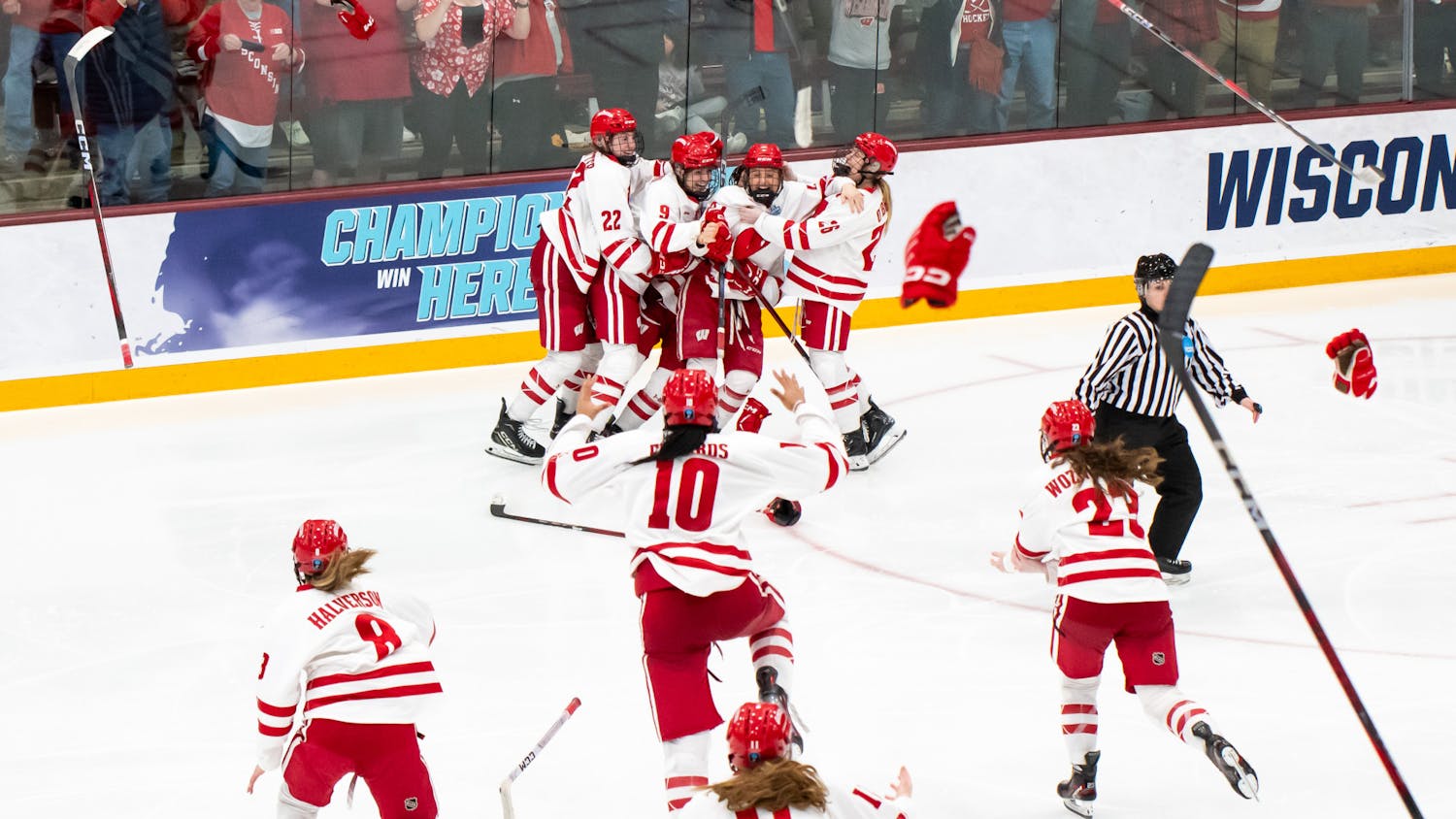Many Eastern European University of Wisconsin-Madison students who went to the polls for the 2024 election paid close attention to the candidates' foreign policy stances on Russia’s war in Ukraine and came away with a favorite.
“Overall, I was more receptive of Trump’s stance [because] I feel that Ukraine, even with arms support, doesn’t have the military capacity to take back more land and risks losing more [in a prolonged war],” said Mikhail, a UW-Madison sophomore originally from Austin, adding this view informed his vote.
Mikhail isn’t alone in his reasoning. While some Eastern European UW-Madison students expressed skepticism of Trump’s unpredictability, many students told the Cardinal they were willing to give Trump a chance to bring a quick end to Russia’s war in Ukraine.
Trump's pledge to end war attracts student support
Since Feb. 24, 2022, when Russian President Vladimir Putin launched a full-scale invasion of Ukraine, the war has become a flashpoint in American politics.
The incumbent Biden administration has been a staunch defender of Ukraine, spending $106 billion in direct military aid which has helped the beleaguered country reclaim more than half of the territory Russia had taken since 2022.
In contrast, Trump has refused to say whether he wants Ukraine to win the war but has said he would end the war during his first day in office.
UW-Madison sophomore Georgii Sukhotin, originally from the suburbs of Moscow, didn’t vote in the 2024 election but said he appreciated Trump’s “initiative” in brokering a swift end to the war.
“He showed real interest in ending this war and this is what’s most important for me,” Sukhotin said, adding he doubted Ukraine could currently defeat Russia. “I don’t want more deaths, more fighting.”
Other students said Trump’s approach to diplomacy appealed to them.
UW-Madison junior Yaroslav Polyakov, a Muscovite Jew, said Biden’s aid to Ukraine has been insufficient and “minimal” in bringing an end to the war, while Trump would take decisive action.
“He’s not afraid to sit at the same table with dictators like Putin and Kim Jong-Un,” Polyakov said.
Trump’s ‘unpredictability’ sparks concern
While students said they were open to Trump taking action to end the war, some expressed concern over how Trump would accomplish that.
Mikhail said his mom, a Russian-speaking Ukrainian from Kharkiv, disliked Trump’s “unpredictability” and potential he would “discard” Ukraine.
A Russian UW-Madison freshman, who requested to remain anonymous, echoed these concerns adding her belief that Trump would force an unequal deal on Ukraine.
“Trump will probably push Ukraine to give up the four occupied provinces to Russia in exchange for peace,” she said.
However, she said Trump would be a stronger negotiator than Biden.
Despite Trump’s pledges to cut aid to Ukraine, Polyakov voiced his belief that the Trump administration wouldn’t cease support.
“It’s obvious Trump will continue to support Ukraine in some form even if he claimed he’d stop sending weapons and money,” said Polyakov.
Why they voted for Trump
For some Eastern Europeans, the Democratic Party’s perceived promotion of “big government” values and support for social movements seemed foreign.
UW-Madison junior Andrei Vardanyan, from Armenia, voiced his belief that most Eastern European immigrants voted for Trump due to his outlook on the LGBTQ community.
“For those with post-Soviet outlooks, LGBT diversity is alien to them,” Vardanyan said. “Trump’s rhetoric that there are only two genders was more appealing to them, in my opinion.”
“While many Democrats are for societal progress by backing movements like BLM, Trans Lives Matter, and so on, many older post-Soviet people don’t understand these movements since promotions of such social issues didn’t exist back in the USSR,” said Mikhail. “As a result, they think Republicans are less radical or more moderate than Democrats.”
Regarding pro-Russian or pro-Ukrainian sympathies, Vardanyan also drew comparisons between Eastern European youth in the U.S. and in Armenia.
Support for Ukraine is a “generational” issue, Vardanyan said. “The parents are more conservative and pro-Russian while the kids are largely liberal, sometimes even radically liberal, and more pro-western.”
Students see a murky future regardless of who’s in office
While desires to end the war were clear among all the students the Cardinal interviewed, no one is certain what the results of these peace talks would be and how it would shape the region for years to come.
A likely subject held over peace talks would be the status of the five provinces of Crimea, Donetsk, Luhansk, Zaporizhia and Kherson, all occupied by Russian forces. Last year, Ukrainian president Volodymor Zelenskyy said Ukraine had no plans to stop fighting until all of Ukraine’s territories were recaptured.
Vardanyan believes peace with Russia would only be temporary before a new war with imperialist aims would erupt.
“If Russia wins the war and integrates parts of Ukraine into its territory, it won’t stop. Belarus will be next to fall, then Georgia, then Armenia, and likely the Central Asian countries too.”
Sukhotin is among the 650,000 emigres who left Russia in the wake of the mobilization order. Prior to moving to the U.S., he lived in Portugal, a popular destination for Russian, Belarusian and Ukrainian expats. He longs for the war to end so that he might return home and be reunited with his family.
“I hope everything will return to a state of normalcy at some point.” Sukhotin said.
Polyakov expressed a similar sentiment.
“I hope this horrible war ends soon,” Polyakov said. “I miss my family, and with the ongoing war, I don’t have a chance to see them.”





